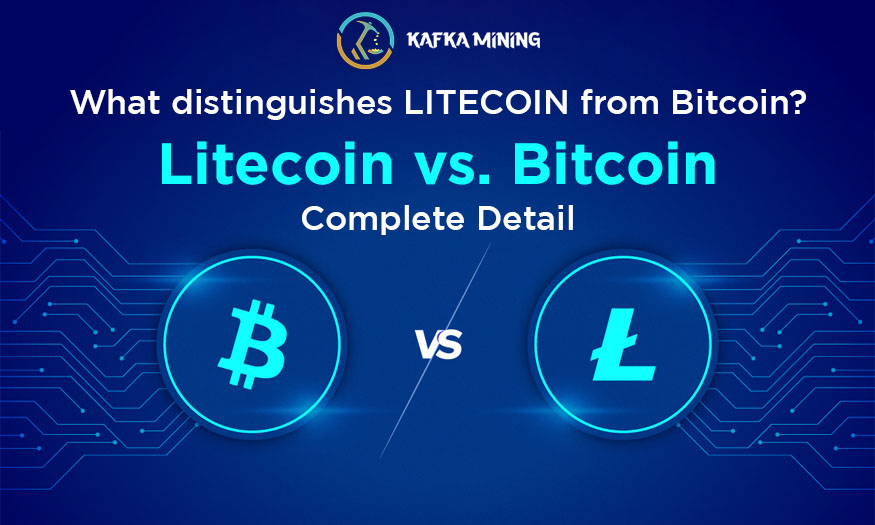
The news is full of stories about cryptocurrencies, like the one about the man who bought $27 worth of bitcoins in 2009, promptly forgot about them, and later discovered their current value of $980,000. The question "Should I invest in cryptocurrency, and if so, what are the top cryptocurrencies to invest in?" is stoked by stories like these.
Although the first cryptocurrency, Bitcoin, only entered the market in 2009, the idea of cryptocurrencies had been around for much longer. Indeed, in 1999, Nobel laureate economist Professor Milton Friedman said, "I think the internet is going to be one of the primary engines for decreasing the role of government. A trustworthy e-cash is the only item lacking but will soon be developed.
The bitcoin digital money was created nine years later.
Litecoin was introduced a few years after bitcoin, and while it uses a similar blockchain technology, there are some significant distinctions. Here is a simple tutorial that compares some of the most significant differences between bitcoin and litecoin to assist you in making your choice if you're not sure which cryptocurrency is best.
Coin Limits and Block Rewards
Both Litecoin and Bitcoin have a set number of coins that may be mined, as well as rewards for finding new blocks. There are a total of 21 million coins allowed in bitcoin, and 84 million coins are allowed in litecoin. No newer currency is introduced into the system after the cryptocurrencies hit these coin limits.
Additionally, the mining incentive "halve[s]" at predefined intervals of time. In contrast to litecoin, which is halved every 840,000 blocks, bitcoins are split in half every 210,000 blocks. For instance, around one bitcoin block is mined every ten minutes, or 144 blocks on average every day. At this rate, it would take around four years for the reward's worth to once again decrease by half. The current reward for validating a block is 25 BTC, meaning the reward will drop to 12.5 coins the following time the network is halved.
Proof-of-work algorithms
A "proof of work" method is used by Bitcoin and Litecoin throughout the mining process to protect and thwart assaults and other cryptocurrency network abuse. People receive incentives from the algorithm when their mining equipment resolves challenging riddles that authorise transactions and add new currencies to the system.
The SHA-256 algorithm, which rewards computing power, is used in Bitcoin mining. The "scrypt algorithm" used by Litecoin promotes fast random access memory over computing power.
The scrypt algorithm's ability to run on less powerful computers is another major advantage for Litecoin. This enables users to start mining the cryptocurrency on their home computers without incurring additional costs or having to undergo extensive training.
Transaction Differences
Litecoin handles transactions far more quickly than bitcoin does, however this speed has downsides like "orphaned blocks." When two litecoin miners produce blocks at roughly the same time, orphaned blocks result.
Faster transaction times do offer advantages, notwithstanding the possibility of orphaned blocks. For instance, litecoin has a major benefit over bitcoin in that merchants who require transactions completed wait only 2.5 minutes instead of 10 with litecoin.
Lastly, a few words
The popularity of cryptocurrencies is rising because they provide decentralisation, deregulation, transaction transparency, and anonymity that are unmatched by fiat currencies. Since anybody can check transactions, there is no centralised bank to readily influence the value of the currency, making payments much safer and lowering the chance of fraud.
However, choosing to use a cryptocurrency is only the first step. You then have to choose which one is finest after making that decision. Bitcoin versus Litecoin? Ethereum or Litecoin? Dash or Litecoin? If you want to start mining, litecoin mining is simple to get started with because the setup is less expensive and the proof of method is simpler. Due to its low transaction costs and quick confirmation periods, this money is especially beneficial for those who engage in a lot of transactions. However, testing, reviewing your experience and outcomes, and iterating as necessary are vital as with any new venture.
Leave a Comment